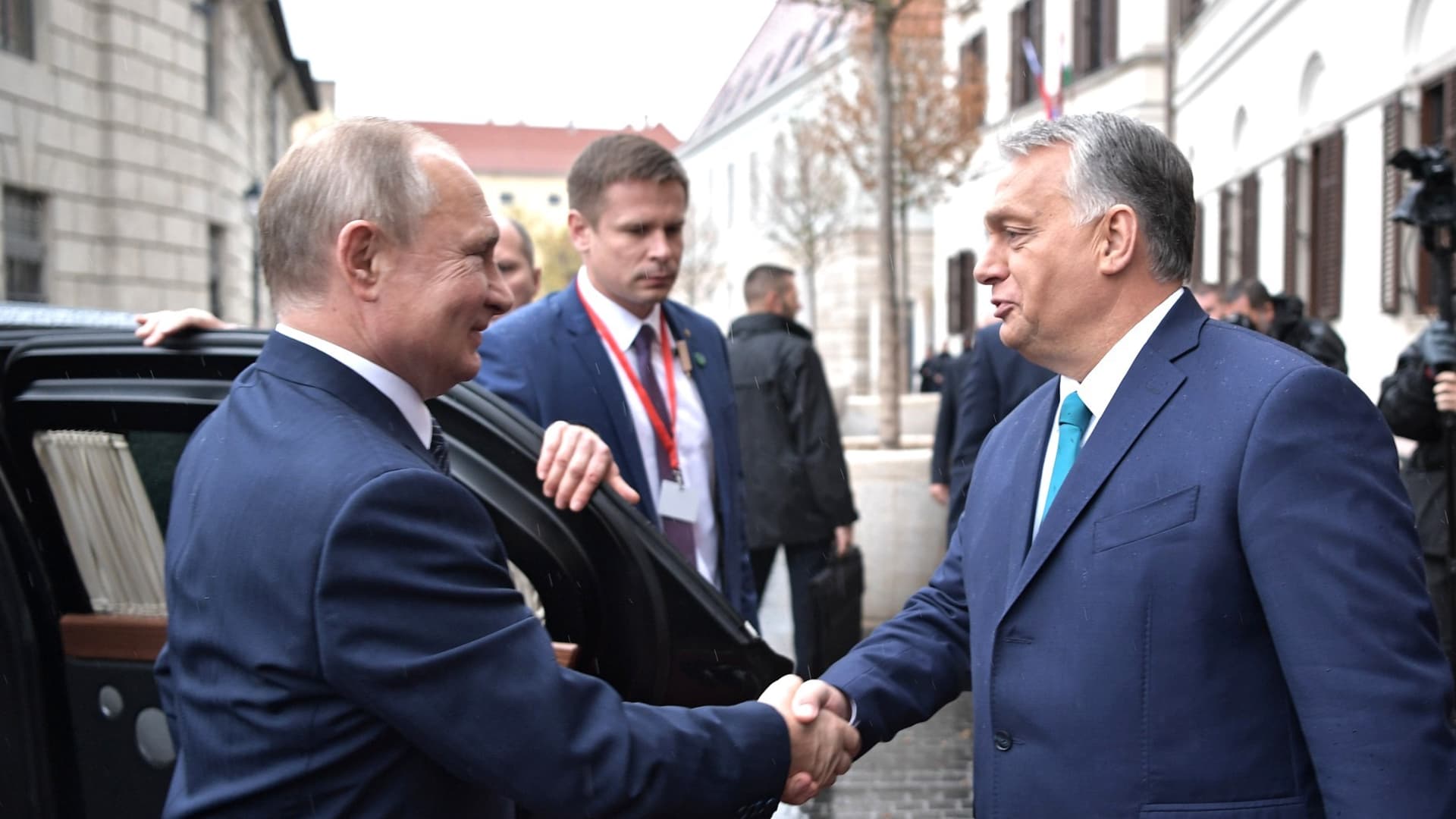NATO ministers vow to maintain support for Ukraine
“Some are questioning whether the United States and other NATO allies should continue to stand with Ukraine as we enter the second winter of Putin’s brutality,” Blinken said at a news conference in Brussels, referring to President Vladimir Putin of Russia. “But the answer here today at NATO is clear, and it’s unwavering. We must and we will continue to support ensuring that Russia’s war of aggression remains a strategic failure.”
Blinken’s remarks came at the tail end of a NATO ministerial meeting in Brussels, where he and other Western diplomats sought to assuage doubts about Western resolve to help Ukraine amid Russia’s full-scale invasion. A White House proposal to send Ukraine additional emergency aid has stalled in the Republican-led House of Representatives, and the war in the Gaza Strip has consumed global attention.
BRUSSELS — Secretary of State Antony Blinken and top Western diplomats vowed Wednesday to sustain support for Ukraine and its bid to join NATO despite dwindling military supplies and competing crises.
He added that he expected that President Biden’s request for $61.4 billion in additional military and economic support for Ukraine would be approved by Congress. “What I continue to see, what I continue to hear, is strong bipartisan support in both chambers of Congress for Ukraine,” Blinken said. In a nod to growing complaints among Republicans that the United States is spending too much on Ukraine, Blinken echoed recent remarks from other US and European officials noting that Washington does not provide most of the support currently going to Kyiv. The United States has given about $77 billion to Ukraine compared with more than $110 billion from European allies over the same period of time, he said. In addition to pledging sustained support, diplomats in Brussels worked to clear a path for Ukraine’s eventual membership in NATO, which the alliance promised this year. Ukraine is not expected to be able to join NATO during the war, to avoid putting the alliance in direct conflict with Russia. This week, diplomats drew up a list of reforms Ukraine should embrace before it gains full membership. NATO Secretary-General Jens Stoltenberg said Wednesday that some reforms were already being carried out but did not specify when they would need to be completed. The United States and European allies have for years demanded that Ukraine take steps to crack down on government corruption. Stoltenberg said Ukraine would also need to modernize its military to NATO standards — the billions of dollars in weapons and training from Western allies since the war began has already helped — in order to fight terrorism and upgrade its intelligence systems. “I’m actually impressed by Ukraine’s commitment to implement reforms, to modernize their society in the midst of a full-scale war,” Stoltenberg said. “It helps them to be a stronger country fighting Russia as an aggressor.” But the effort to assure Ukraine during the NATO and European Union meetings this week in Brussels appeared “heavy on promises and light on strategy,” said Michael John Williams, a European policy specialist at Syracuse University and the Atlantic Council. “The EU isn’t suffering from Ukraine fatigue, but it lacks a concrete plan for the long haul,” Williams said. “Putin has put Russia on an industrial war footing, and he thinks he can wait Brussels and Washington out.” Ukraine urgently needs more ammunition and other weapons to try to turn the tide on the battlefield, where its counteroffensive against entrenched Russian forces has stalled. With NATO’s weapons supplies too low to donate much more while Russia’s large missile stockpile continues to grow, Ukrainian Foreign Minister Dmytro Kuleba urged allies to increase their weapons output. “I have no reasons to believe that the West lacks political will to do so,” Kuleba said in Brussels. “But I do have good reasons to believe that a lot of very technical, very professional work has to be done to deliver.” But Ukraine is now competing with other world crises for US attention and funding. House Republicans in Congress have approved more money for Israel for its war against Hamas militants in Gaza but are blocking what the Biden administration has proposed for Ukraine. Blinken will travel to Israel, the West Bank, and the United Arab Emirates later this week to try to extend a humanitarian pause and pressure Hamas to release more hostages. European diplomats have also expressed growing alarm over a potential crisis closer to home, accusing Russia of sending migrants into neighboring countries in a ratcheting up of tensions that has already prompted Finland to close its border. Norway, Estonia, and other states have said they are considering doing the same. “It’s our common understanding that the war is not only in Ukraine — Russia is attacking all our systems, all our different countries,” Estonian Foreign Minister Margus Tsahkna said Wednesday. Blinken flew from Brussels to Skopje, North Macedonia, for a meeting of the Organization for Security and Cooperation in Europe. Ukraine and the three Baltic nations of Estonia, Latvia, and Lithuania are boycotting the meeting because it will be attended by Russian Foreign Minister Sergey Lavrov. “The difficulty that we have is with Russia, but Russia is still part of this organization, setting its terms for how this organization should work,” Latvian Foreign Minister Krišjānis Kariņš said. “And the question is, well, how can this organization actually function?” This article originally appeared in The New York Times .
















